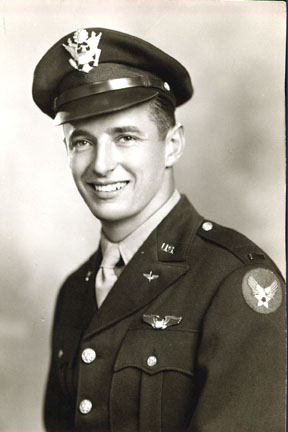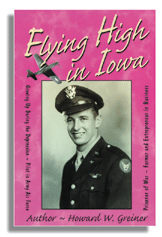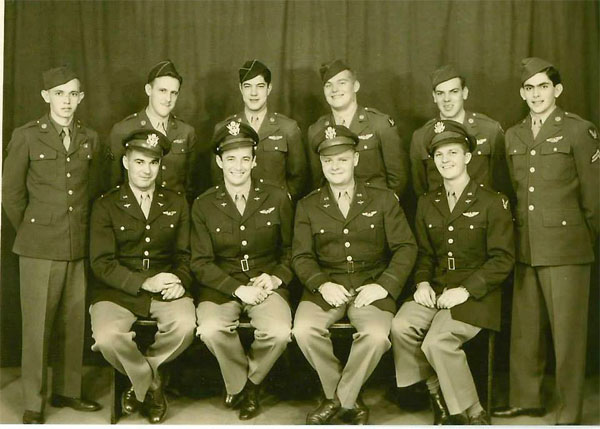
Established April 14, 1942
 |
American Ex-Prisoners of War
A not-for-profit, Congressionally-chartered veterans’ service organization advocating for former prisoners of war and their families.
Established April 14, 1942 |


Howard Greiner
|

Howard's Book in Print (call 1 800 728-4286)
|
|
| Last Name | First Name, Middle Init. | Nickname |
| Spouse | City | State, Zip |
| Conflict — Theatre | Branch of Service | Unit: |
| Military Job | Date Captured | Where Captured |
| Age at Capture | Time Interned | Camps |
| Date Liberated | Medals Received | |
| After the War ... | ||
The navigator was in the waist trying to help the injured tail gunner when the engineer and the radio operator came back with the order to bail out. The navigator went forward to get his chute and found the co-pilot sill in his seat trying to keep the plane under control.
He told the co-pilot to bail out and went out of the nose thinking the co-pilot would follow him. The tail gunner was badly wounded by flak and his chute was damaged. He was near the left waist window under some blankets. The radio operator and the engineer tried to find a spare chute but couldn't because of the flames and smoke. The engineer saw the two waist gunners sitting by the escape hatch, which he had opened, but they looked dumbfounded.
After an explosion the radio operator dove out through the rear escape hatch. The engineer followed him out after a second explosion. But the other three did not get out. As he navigator was flowing down with his chute he thought the engineer and radio operator left the plane as it exploded because he saw two chutes open. The co-pilot made to attempt to bail out. The plane crashed near the small town of Lubbbecke, a few miles west of Minden.
They had to do a lot of walking, so the navigator and Richard supported the pilot as they hobbled along. The sometimes rode in trucks, slept in barns, traveled by train and more walking. The German soldiers traveling with them had to protect the prisoners from some of the angry civilians, especially in train stations.
The pilot did not spend time in a prison camp but ended up in the German Hospital at Hohemark. He was liberated by the US 3rd Army's 5th Division Reconnaissance Troop on March 29k after a German medic slipped through Nazi lines with word that there were prisoners at the hospital. No information has yet been found as to where Richard was imprisoned. He wouldn't talk about it after he came home except to say he wasn't physically and that a lot of the food had maggots and otherwise was pretty bad. He said the guards had to eat the same food.
On his questionnaire, Richard said he saw the pilot in Frankfort for the last time and after he was liberated he met the navigator at Camp Lucky Strike in France. Camp Lucky Strike was used to take care of liberated prisoners of war until they could be sent on their way home to the US.
The Mission Report and the Group Gunnery Officer Reported stated: The enemy aircraft made one pass and Greiner's plane was seen with one landing gear down, smoking and losing altitude. Several crews reported he made it back, with fighter support, as far as Dummer Lake where it exploded.
The pilot, Howard Greiner, at the age of 76, wrote an autobiography titled, "Flying High Over Iowa." He devoted a few chapters to his WWII experience. (Available on Amazon.)
